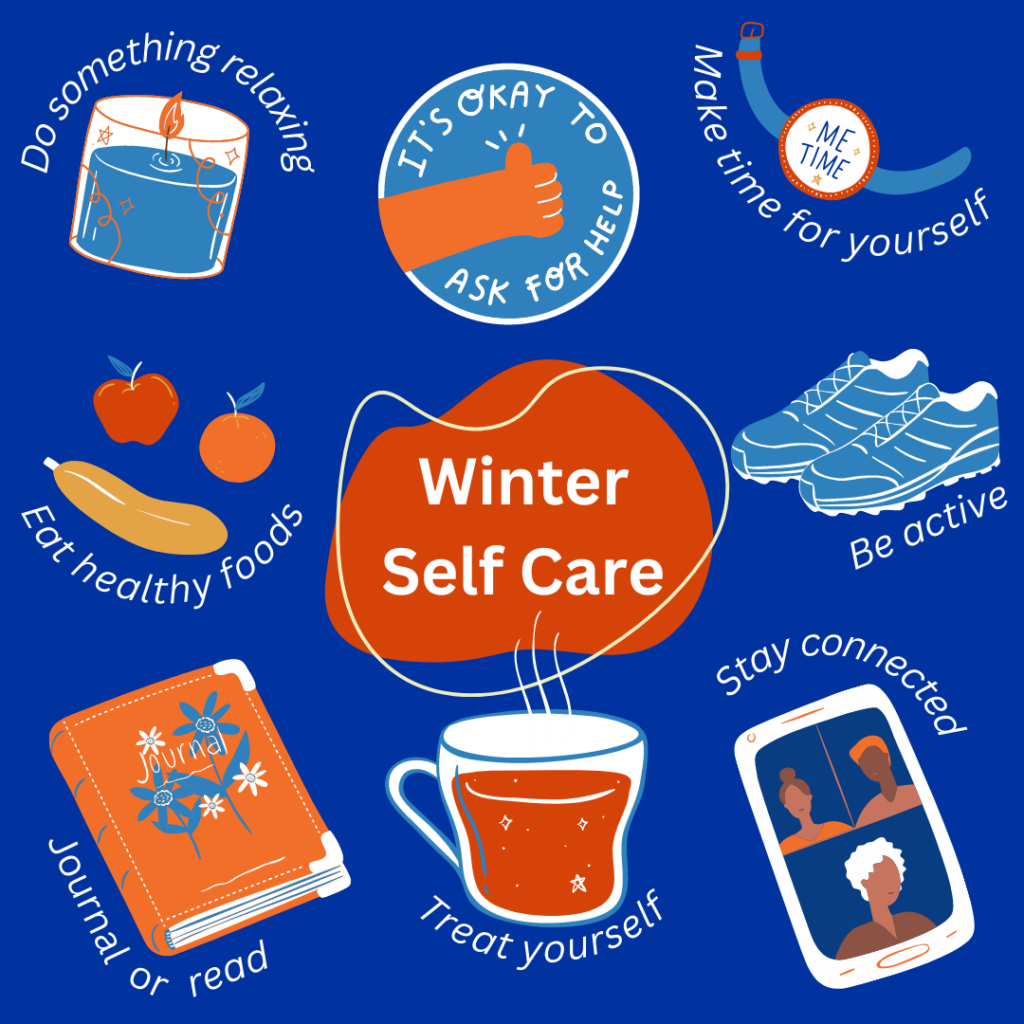
February can feel like a long month. When days are shorter and colder, the sky is grey, and the busyness of school and work seems monotonous, you may find yourself slipping into a seasonal slump. There’s a condition called seasonal affective disorder (SAD), which is a form of depression that occurs seasonally, typically during fall and winter months (but can also occur in the spring and summer) in locations that are farther from the equator. We want to tell you what SAD is and how it affects people so you can learn the signs and combat it. Here are 5 ½ ways to monitor your mental health and implement healthy habits.
1) There’s a difference between feeling sad and SAD
It’s normal for everyone to get sad. What distinguishes feeling sad from SAD is the consistency and frequency of those feelings of sadness or hopelessness. According to the Mayo Clinic, some symptoms of winter-onset seasonal affective disorder include oversleeping, weight gain, low energy, and appetite changes. Other signs can be difficulty concentrating, losing interest in activities, and having suicidal thoughts. Students experience a lot of stress and changes in their college journey in addition to possible SAD symptoms, so it’s understandable that complicated emotions add to the struggle of being a student.
2) Less daylight affects sleep cycles
SAD can disrupt your internal clock since there is less daylight in the wintertime. This ends up affecting your sleep cycle, which is crucially important to your health. Daylight savings also contributes to this problem. You can take vitamin D daily to help boost your energy and so you don’t miss out on the nutrients you would normally get from the sun. It can help to make yourself a set a sleep schedule so you’re not sleeping in more than usual and then feeling more tired throughout the day.
3) Physical activity is a game changer
There are several physical and mental health benefits to regular exercise. Having physical activity releases endorphins which trigger positive feelings in the body. Integrating movement into your day is healthy not only for your body, but for your brain. In winter weather, there can be a loss of some outdoor activities, but Boise has lots of recreation to offer even when it’s cold outside. You can still go for a walk in the foothills or on the greenbelt or visit the Rec Center. You can find other suggestions in another story 5 ½ Things to Do in the Winter in Boise (Especially if You Don’t Ski or Snowboard).
4) Having a support system is essential
It’s important to have a strong support system and a community of people around you so you don’t unintentionally isolate yourself. Finding someone to talk to makes all the difference in your mental well-being. There are plenty of ways to find your people and we even wrote an article about it: 5 ½ Things About Connecting with People. Spend quality time with your people to fill your soul and theirs.
5) There’s resources for students
Whatever you’re dealing with, you’re not alone. Boise State offers several mental health resources including counseling and online screenings. You can take the 8 Dimensions of Wellness Quiz as a simple online assessment in order to balance the aspects of a healthy and wholesome life. You even can dial 988 to talk to someone about any behavioral health crisis or thoughts of suicide 24/7. Being proactive about seeking help for your mental health is essential in the long run and can save you from feeling isolated and at a loss for what to do.
5 ½) Care for yourself
Self care is not only important for your mental health, but it can be fun. Treating yourself to the things you love doing is a good way to prioritize happiness and appreciate the little things in life. It could be as simple as getting your favorite snack, or journaling, or treating those around you with kindness. Because when you do something kind for someone, you’ll feel a little better too.
